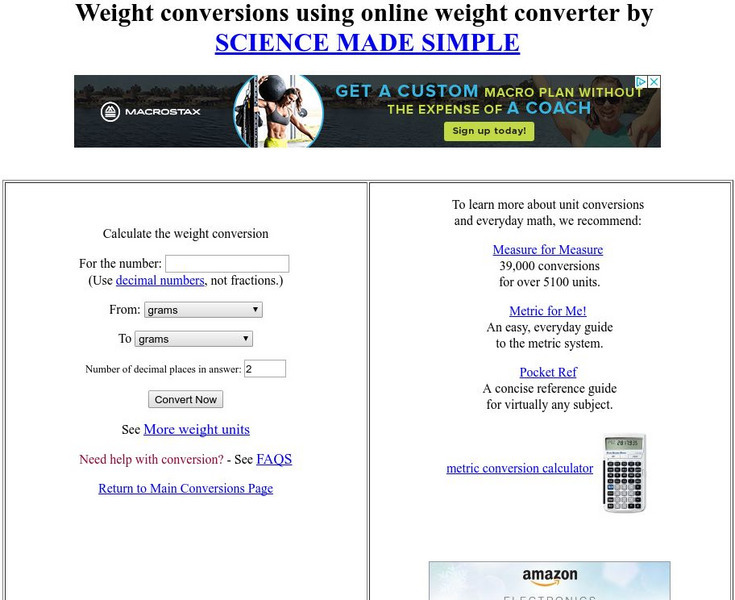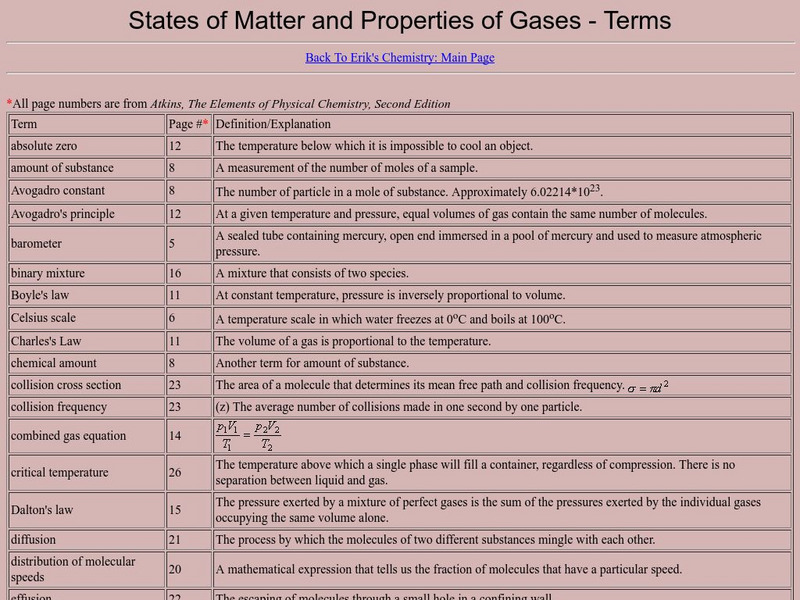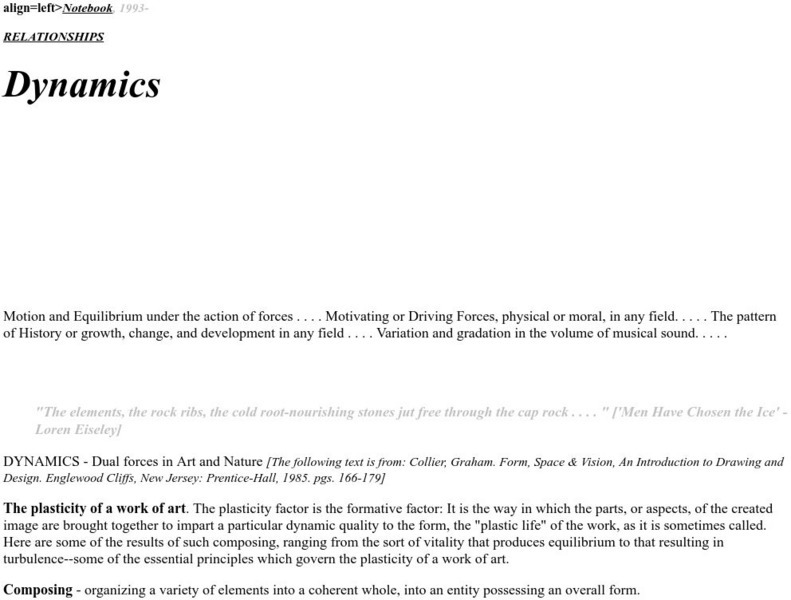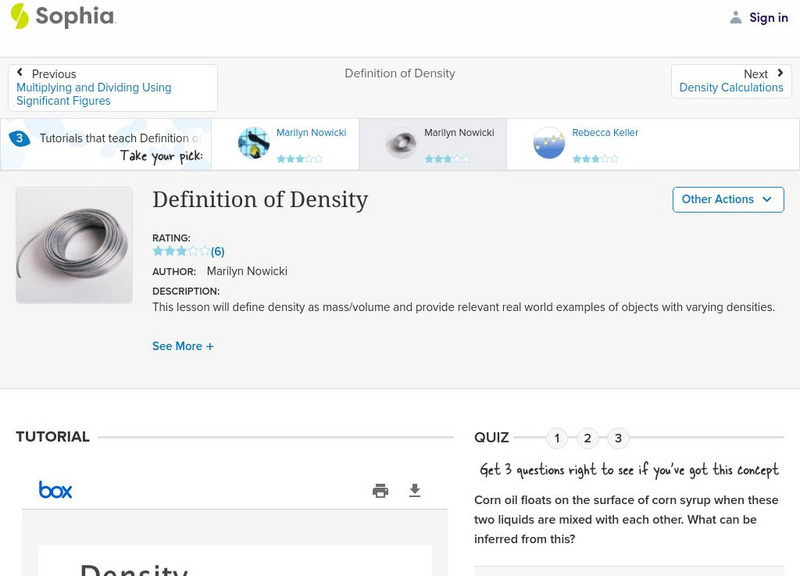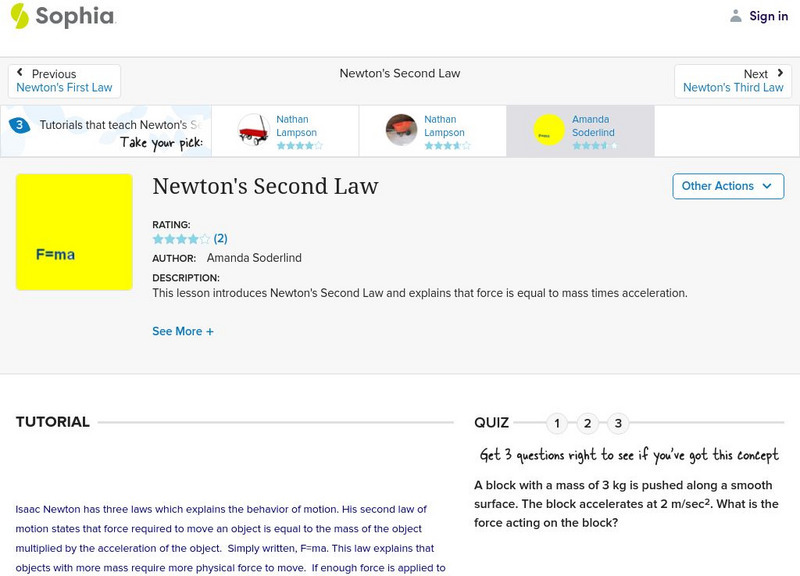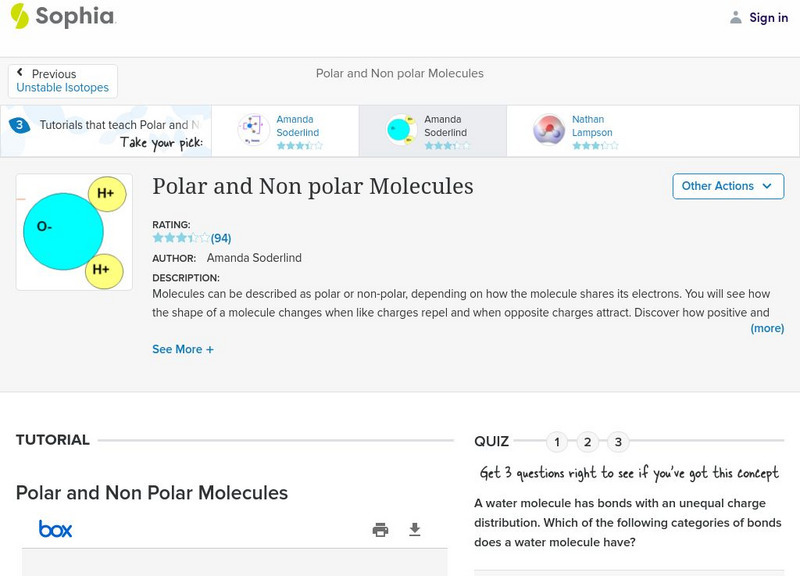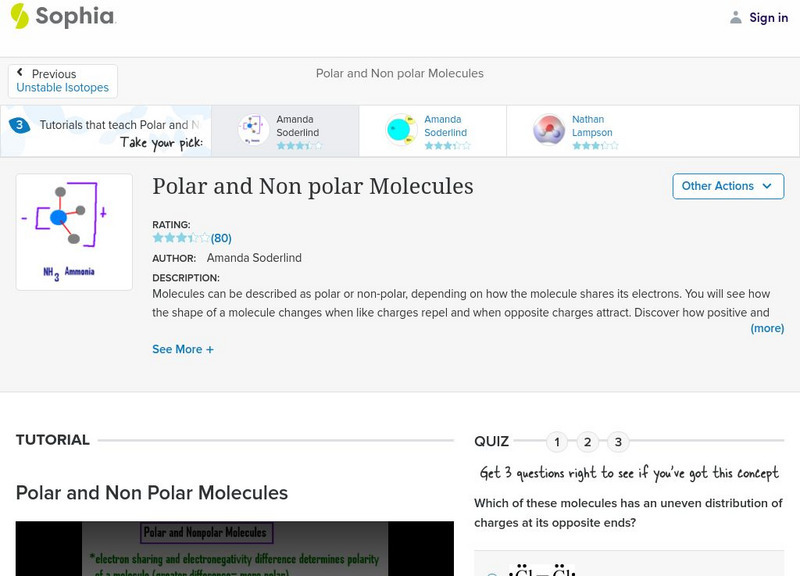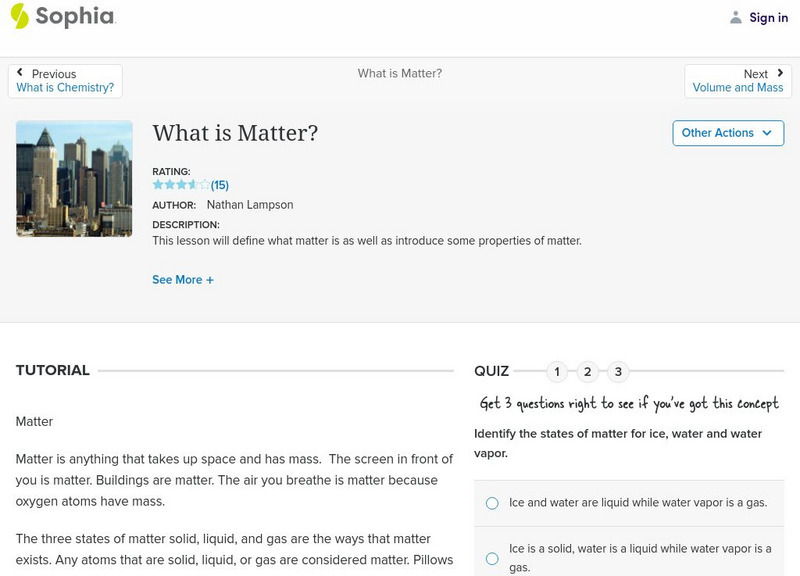The Math League
The Math League: Decimals in Measurement
This site gives information on the metric system, as well as abbreviations for metric conversion.
The Math League
The Math League: Mass
This site gives conversions from metric to metric as well as providing abbreviations for each.
PBS
Pbs Teachers: Water Density
Demonstrate the effect that dissolving different amounts of salt in water has on the density of the liquid.
PBS
Pbs Teachers: What's More Dense
Compare the density of water, corn oil and corn syrup by trying to float different items in each material and then putting all three liquids into one container.
PBS
Pbs Teachers: Submarine Race Experiment
Balance the force of gravity with the force of the expanding gasses created by mixing baking soda and vinegar. Create a soda bottle submarine that sinks to the bottom of the bathtub and then rises back to the surface.
Other
Conversions for Weight Measurements
This site allows you to convert weight/mass measurements. For example converting tons to grams. CCSS.Math.Content.3.MD.A.2 Measure and estimate liquid volumes and masses of objects using standard units
Other
States of Matter and Properties of Gases: Terms
A very complete list of terms that are important to the study of gases. This resource is a web archive.
Other
Relationships: Dynamics
The dynamics of shape in art and the relationship of shape with the other elements of art. The effects of angles and lines on perception.
Concord Consortium
The Concord Consortium: Molecular Workbench: Mass Hung on a Spring
Experiment to see how air resistance affects the periodic motion of a mass on a spring.
ICT Games
Ict Games: Mostly Postie: Grams and Kilograms
Practice identifying metric mass units by putting packages on the scale. Read the scale, then choose the correct number and metric unit.
Sophia Learning
Sophia: Defining Momentum Mathematically: Lesson 2
This lesson provides a mathematical relationship for momentum. It is 2 of 2 in the series titled "Defining Momentum Mathematically."
Sophia Learning
Sophia: Definition of Density: Lesson 2
This lesson will define density as mass/volume and provide relevant real world examples of objects with varying densities. It is 2 of 3 in the series titled "Definition of Density."
Sophia Learning
Sophia: Mass & Acceleration: Lesson 1
This lesson explains why mass and acceleration are inversely proportional. It is 1 of 2 in the series titled "Mass & Acceleration."
Sophia Learning
Sophia: Measuring Mass: Lesson 1
This lesson explains what units are commonly used to measure mass. It is 1 of 4 in the series titled "Measuring Mass."
Sophia Learning
Sophia: Momentum: Lesson 2
This lesson will introduce the concept of momentum, explaining what it is and how it can be calculated by using an object's mass and velocity. It is 2 of 4 in the series titled "Momentum."
Sophia Learning
Sophia: Momentum: Lesson 4
This lesson will introduce the concept of momentum, explaining what it is and how it can be calculated by using an object's mass and velocity. It is 4 of 4 in the series titled "Momentum."
Sophia Learning
Sophia: Newton's First Law: Lesson 1
This lesson introduces Newton's First Law, that inertia causes objects at rest to remain at rest, and objects in motion to remain in motion. It is 1 of 3 in the series titled "Newton's First Law."
Sophia Learning
Sophia: Newton's Second Law: Lesson 2
This lesson introduces Newton's Second Law and explains that force is equal to mass times acceleration. It is 2 of 3 in the series titled "Newton's Second Law."
Sophia Learning
Sophia: Newton's Second Law: Lesson 1
This lesson introduces Newton's Second Law and explains that force is equal to mass times acceleration. It is 1 of 3 in the series titled "Newton's Second Law."
Sophia Learning
Sophia: Normal Force & Mass: Lesson 1
This lesson demonstrates how normal forces can be used to find the mass of an object. It is 1 of 2 in the series titled "Normal Force & Mass."
Sophia Learning
Sophia: Polar and Non Polar Molecules: Lesson 2
This lesson will introduce polar and non-polar molecules, explaining their location, charge, and mass. It is 2 of 3 in the series titled "Polar and Non polar Molecules."
Sophia Learning
Sophia: Polar and Non Polar Molecules: Lesson 3
This lesson will introduce polar and non-polar molecules, explaining their location, charge, and mass. It is 3 of 3 in the series titled "Polar and Non polar Molecules."
Sophia Learning
Sophia: Volume and Mass
This lesson will describe the concepts of volume and mass and show how to calculate volume and mass.
Sophia Learning
Sophia: What Is Matter?
This lesson will define what matter is as well as introduce some properties of matter.





